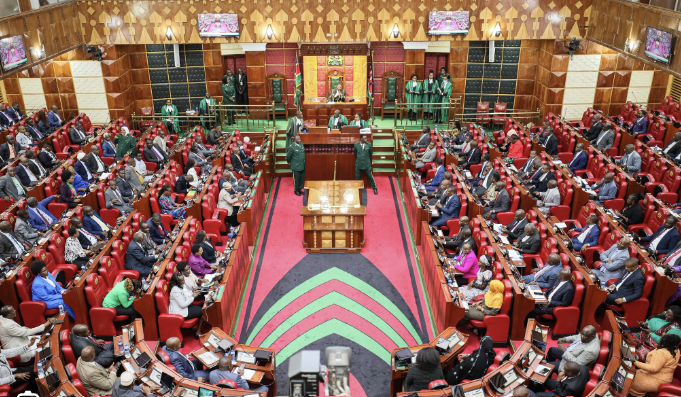
Members of the National Assembly have praised the Supreme Court’s decision to reinstate the annulled Finance Bill 2023, while also clarifying the framework for public participation.
In a notable shift from previous criticisms of judicial overreach, MPs, led by House leadership, commended the Court for setting a solid foundation for Parliament to establish comprehensive public participation laws.
Leader of the Minority Party, Hon. Junet Mohamed, remarked that the Court's ruling has provided essential guidance for Parliament to advance with legislation that meets constitutional requirements.
He highlighted that, since the adoption of the 2010 Constitution, numerous laws passed by Parliament and assented to by the President have been challenged and invalidated in court due to issues with public participation, hindering effective legislative progress.
“For the past decade, any legislation we pass has faced a high risk of being struck down by the courts,” noted Junet, who also serves as MP for Suna East.
“Often, entire Acts of Parliament have been declared unconstitutional rather than just the specific clauses in question, which disrupts Parliament’s work.”
Reflecting on the Supreme Court’s judgment, Junet shared his optimism.
“I read the judgment last night, and it filled me with hope. The Supreme Court made it clear that Parliament’s role is not to convince the public of every detail of legislation but simply to keep them informed. Our mandate is to legislate on behalf of Kenyans, exercising sovereign power delegated to us,” he said.
“The Court wisely emphasized that while public participation is necessary, it does not require public agreement on every legislative decision. Legislation is crafted on the floor of the House, not through public consensus.”
The Suna East legislator stressed that the time is ripe for the Public Participation Bill to be introduced on the House floor, now that the Supreme Court has clarified its path.
He urged that the bill be fast-tracked, noting that Kenyans have suffered from repeated judicial nullifications of legislation due to insufficient public participation.
Leader of the Majority Party, Hon. Kimani Ichung’wah, echoed this sentiment, saying that the Supreme Court, as the apex advisory body, has now set the pace for Parliament to enact clear guidelines for public participation in the National Assembly, Senate, and county assemblies. Ichung’wah noted that while some judges, particularly in the High Court, have inconsistently applied public participation standards, the Supreme Court’s recent decision brings much-needed clarity.
He commended judges who have exercised judicial restraint in defining what constitutes adequate public involvement.
“I agree with the Minority Leader that, according to Article 2 of our Constitution, people may exercise their sovereign power directly or through their democratically elected representatives. Those representatives are the members of this House and the Senate,” Ichung’wah stated.
Reflecting on past rulings, he noted:
“I’ve read previous judgments on the qualitative and quantitative requirements for meaningful public participation, but the Supreme Court has now clarified that public participation is not a referendum.”
He cited the impeachment process of former Deputy President Rigathi Gachagua, where some argued public participation required referendum-like outreach.
“There’s also a misconception that Parliament’s public participation process requires collecting a consensus of public opinion,” Ichung’wah added.
“However, while MPs should consider public views, those views may not necessarily dictate legislative outcomes.”
He further advised House committees that their role in public participation is to listen to public views, then weigh them against legislative objectives and policy proposals.
The Kikuyu legislator informed the House that the Office of the Attorney General is finalizing a substantive Public Participation Bill, in line with the Supreme Court’s recent guidance.
This legislation, he stated, would help prevent future statutes passed by Parliament from being rendered unconstitutional due to public participation deficiencies.








![[PHOTOS] Kindiki hosts MPs from Coffee growing regions](/_next/image?url=https%3A%2F%2Fcdn.radioafrica.digital%2Fimage%2F2025%2F03%2F02a0f55b-adec-49a1-9756-cb4a3129ba42.jpg&w=3840&q=75)


